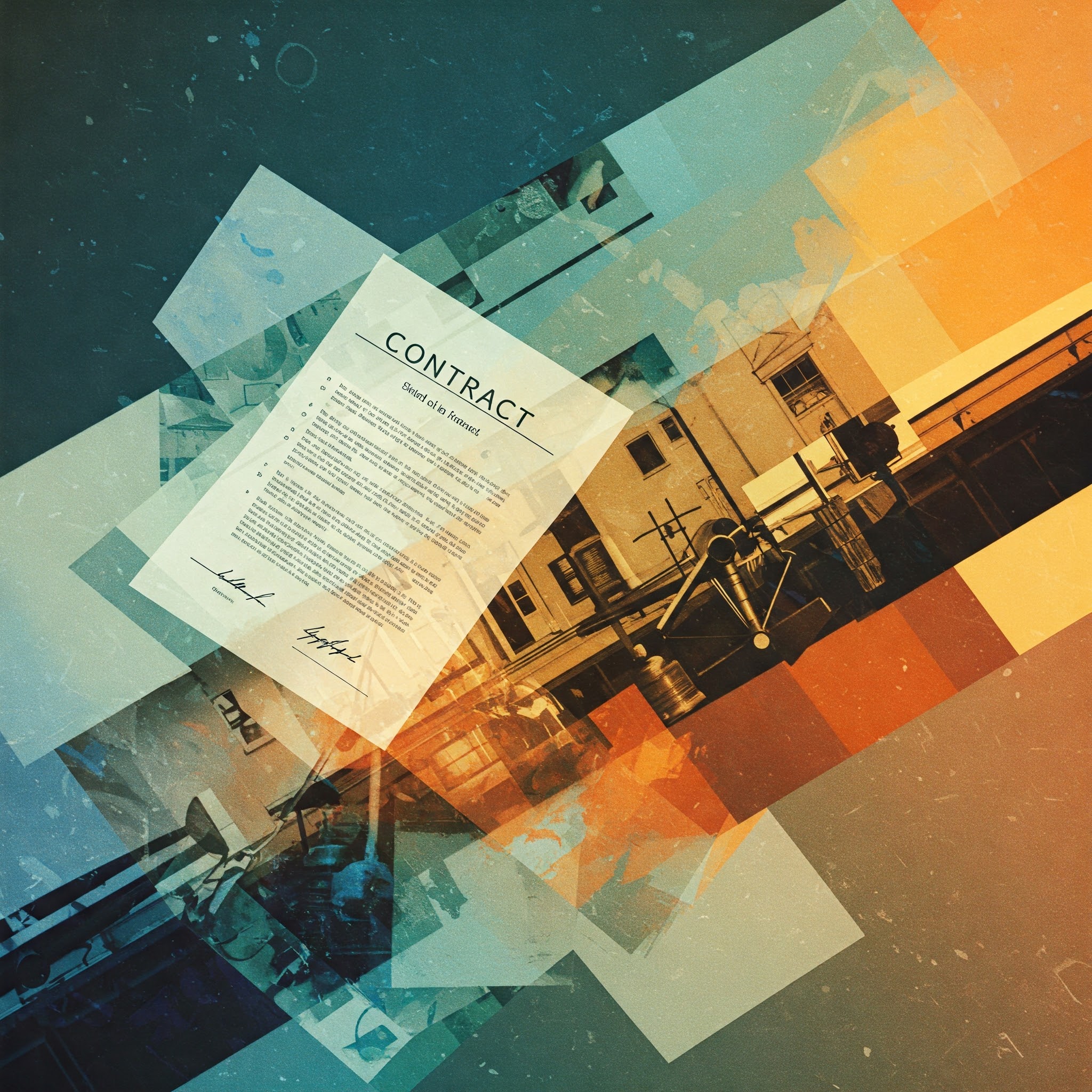Investing in commercial real estate (CRE) in Florida can be highly profitable, thanks to the state’s dynamic economy, growing population, and favorable tax environment. From bustling urban centers like Miami and Tampa to rapidly developing regions like Orlando and Jacksonville, the opportunities for investors are abundant. However, alongside these opportunities come a range of legal complexities that can significantly impact the success of your investments.
Navigating the legal landscape of commercial real estate in Florida requires an understanding of property laws, zoning regulations, tax considerations, contract law, and environmental compliance, among other key issues. In this article, we’ll guide you through the critical legal aspects you need to be aware of when investing in Florida’s commercial real estate market. By understanding these legal factors, you can mitigate risks and ensure that your investments are secure and compliant.
1. Zoning and Land Use Regulations
One of the most critical legal aspects to consider when investing in commercial real estate is zoning and land use regulations. Florida’s cities and counties have zoning ordinances that determine how properties can be used, which affects everything from the type of development allowed to the height and density of buildings.
Key Considerations:
- Zoning Categories: Florida zoning typically includes categories such as commercial, industrial, residential, and mixed-use. Before purchasing a property, you need to ensure that the zoning aligns with your intended use (e.g., retail, office space, warehousing).
- Zoning Variances: If your project doesn’t fit within the current zoning guidelines, you may need to apply for a zoning variance or a change in zoning classification. This requires navigating a sometimes lengthy approval process with the local zoning board or city planning department.
- Future Zoning Changes: Be aware that future zoning changes can affect the value and usability of your property. Work with local real estate attorneys and experts to anticipate zoning trends and future developments that may impact your investment.
Understanding and complying with zoning laws is essential to avoid costly legal disputes, delays in development, or having your project shut down due to non-compliance.
2. Contracts and Commercial Leases
Commercial real estate transactions are governed by contracts, which must be carefully drafted to protect your interests as an investor. Whether you’re buying, selling, or leasing property, the terms of your contracts will dictate your legal rights and obligations.
Purchase and Sale Agreements:
- Due Diligence Period: Most purchase agreements in Florida include a due diligence period, during which the buyer can inspect the property, check zoning compliance, and review financial records. Ensuring that you have adequate time for due diligence is critical to avoiding unexpected issues after closing.
- Contingencies: Contracts often include contingencies that allow a buyer to back out or renegotiate if certain conditions aren’t met, such as securing financing or receiving a satisfactory property inspection.
- Title Review: Florida requires a thorough title review to ensure the property is free from liens, encumbrances, or legal claims that could affect your ownership. Title insurance is also highly recommended to protect against any future title disputes.

Commercial Leases:
For investors looking to lease their commercial properties, it’s important to negotiate a lease agreement that covers:
- Rent Escalations: Florida’s commercial leases often include provisions for rent escalations, where rent increases over time. Make sure the escalation clause aligns with market conditions and inflation rates.
- Triple-Net (NNN) Leases: Common in Florida, NNN leases require tenants to pay not only the base rent but also property taxes, insurance, and maintenance costs. Ensure that the terms of such leases are clear to both parties.
- Default Provisions: Clearly define what constitutes a lease default (e.g., non-payment, failure to maintain the property) and what remedies are available, such as lease termination or legal action.
Working with an experienced real estate attorney to draft and review contracts can help prevent future disputes, costly legal battles, and financial loss.
3. Title Insurance and Property Ownership
Florida’s commercial real estate market has a unique legal environment when it comes to property ownership and title insurance. A thorough review of the property’s title is crucial to confirm that the seller has legal ownership and the authority to transfer the property without legal disputes.
Title Search and Title Insurance:
- Title Search: A comprehensive title search is essential to verify that the property is free from liens, encumbrances, or ownership disputes. Any unresolved issues could affect your ability to fully control or sell the property in the future.
- Title Insurance: In Florida, title insurance protects the buyer against future claims or legal challenges to property ownership. This one-time purchase is highly recommended, especially in the CRE market where large sums of money are at stake.
Investors should work with title companies and real estate attorneys to conduct due diligence and ensure that title insurance is in place before completing a transaction.
4. Environmental Regulations and Compliance
Environmental regulations are another key legal consideration when investing in commercial real estate in Florida. Given the state’s unique geography, including wetlands, coastal areas, and a high water table, certain properties may be subject to federal, state, or local environmental laws.
Environmental Due Diligence:
- Phase I and Phase II Environmental Site Assessments (ESA): Conducting an ESA is critical before purchasing commercial property in Florida. A Phase I ESA typically involves a review of historical records and an on-site inspection to determine whether the property is contaminated. If concerns arise, a Phase II ESA will include soil testing and other in-depth evaluations.
- Wetlands and Coastal Regulations: Properties near Florida’s coastlines or in areas with wetlands may be subject to the Florida Department of Environmental Protection (FDEP) regulations or U.S. Army Corps of Engineers guidelines, which can limit development or require special permits.
- Brownfield Sites: Florida offers incentives for the redevelopment of brownfield sites (properties with known environmental contamination). However, strict compliance with environmental cleanup laws is required to avoid fines or legal action.
Ignoring environmental regulations can lead to significant fines, lawsuits, and even project shutdowns. It’s essential to consult with environmental experts and real estate attorneys to ensure compliance.
5. Tax Considerations and Incentives
Florida’s tax environment is one of the most attractive in the U.S. for commercial real estate investors. However, it’s important to understand the various tax laws and incentives that can impact your investment.
Key Tax Considerations:
- No State Income Tax: Florida does not have a state income tax, making it a favorable location for investors seeking to maximize returns.
- Property Taxes: Florida’s property taxes vary by county and can be significant, particularly for large commercial properties. Investors should budget for property taxes and consider how they will be factored into leases (e.g., through NNN leases).
- Capital Gains Taxes: Like all U.S. states, Florida follows federal capital gains tax laws. Investors should be mindful of 1031 exchanges, which allow the deferral of capital gains taxes when reinvesting proceeds from the sale of one property into a similar property.
- Depreciation Deductions: Florida allows for depreciation deductions on commercial properties, which can significantly reduce taxable income.
Incentives for CRE Investors:
- Opportunity Zones: Florida has designated several Opportunity Zones, where investors can receive tax benefits for developing or improving properties in economically distressed areas. These incentives include deferring capital gains taxes and receiving a stepped-up basis on investment gains.
- Local Tax Incentives: Some Florida municipalities offer property tax reductions or development grants for investors willing to improve infrastructure, create jobs, or rehabilitate properties in designated redevelopment areas.
Tax planning is a critical component of a successful CRE investment strategy. Consulting with a tax advisor who specializes in real estate can help you take full advantage of Florida’s favorable tax environment and avoid costly tax liabilities.
6. Permitting and Development Approvals
For investors involved in property development or redevelopment, obtaining the necessary permits and approvals is a critical legal step. Florida’s permitting process can be complex, particularly for large-scale commercial projects.
Key Permitting Considerations:
- Building Permits: Any significant construction or renovation work will require building permits from the local government. This process involves submitting architectural plans, passing inspections, and ensuring compliance with local building codes.
- Development Approvals: For new developments or large-scale renovations, investors may need to seek additional development approvals, which could involve public hearings or obtaining support from local planning boards. Projects in special areas, such as historical districts or coastal zones, may require additional permits and approvals.
- Impact Fees: Some counties and municipalities in Florida impose impact fees on new developments to help cover the cost of infrastructure improvements (e.g., roads, schools, and utilities). These fees can significantly impact the cost of your project.
Navigating the permitting and approval process requires careful planning and coordination with local authorities, contractors, and attorneys. Delays in securing the necessary permits can result in increased costs and missed opportunities.
7. Dispute Resolution and Litigation
Despite careful planning, legal disputes can still arise in commercial real estate transactions. Common disputes in Florida’s CRE market include:
- Breach of Contract: Disputes over purchase agreements, leases, or development contracts can result in costly litigation. Ensuring that your contracts are well-drafted and include clear dispute resolution clauses is essential.
- Boundary and Easement Disputes: Issues related to property boundaries, easements, and access rights can lead to legal challenges. A thorough title search and survey can help avoid these disputes.
- Tenant-Landlord Disputes: Disagreements between commercial landlords and tenants over rent, maintenance, and lease terms are common in the CRE sector. It’s important to have strong lease agreements and a clear understanding of both parties’ rights and obligations.
In the event of a legal dispute, Florida offers several avenues for resolution, including mediation, arbitration, and litigation. Working with a qualified real estate attorney can help resolve disputes quickly and protect your investment.
Conclusion
Investing in commercial real estate in Florida offers tremendous opportunities, but it also comes with a range of legal complexities that must be navigated carefully. From zoning laws and contracts to environmental compliance and tax considerations, understanding the legal landscape is critical to ensuring a successful investment.
Partnering with experienced real estate attorneys, local consultants, and tax advisors can help mitigate risks, streamline transactions, and protect your financial interests. By thoroughly addressing the legal aspects of your investment, you can capitalize on Florida’s booming CRE market while minimizing exposure to legal challenges and liabilities.




